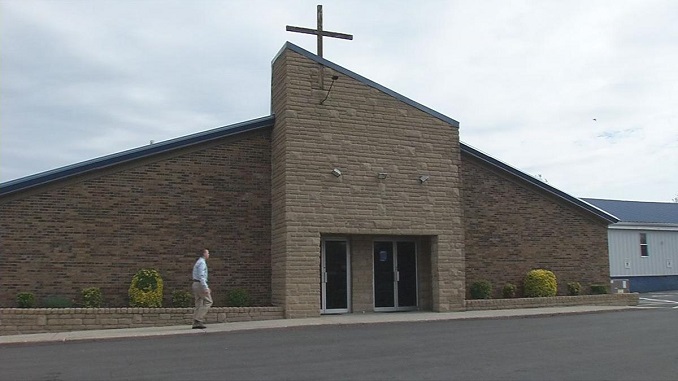Liberty Counsel has asked the U.S. Supreme Court to review Maryville Baptist Church v. Beshear, a case which presents a critically important Due Process Clause question regarding whether a vested right earned from a legal victory can be retroactively eliminated several years later by recent changes in legal precedent.
REACH PRO-LIFE PEOPLE WORLDWIDE! Advertise with LifeNews to reach hundreds of thousands of pro-life readers every week. Contact us today.
The case began in 2020 when Maryville Baptist Church and its pastor, Dr. Jack Roberts, obtained the first preliminary injunction in the nation from a Court of Appeals against unconstitutional COVID-19 lockdowns on churches and places of worship. In a nearly identical case, Theodore Roberts v. Neace, congregants of the same church also won an injunction. As a result of these injunctions, Kentucky Governor Andy Beshear rescinded the mandate, but has still not yet been held fully accountable for punishing churchgoers with job-endangering quarantines for attending a parking lot Easter service during the unconstitutional lockdowns.
Liberty Counsel asserts that there must be accountability for this unconstitutional mandate that shut down churches and places of worship and that there must be consequences to the governor’s illegal actions.
The Maryville case involves what is referred to as “prevailing party” status. While the district court in the nearly identical Roberts case awarded the congregants prevailing party status and a vested entitlement to attorney’s fees and costs, a different judge denied the church and its pastor the same status and vested right. The Sixth Circuit Court of Appeals, citing longstanding precedent, reversed that decision and sent the case back to the lower court to award the church prevailing party status noting that the facts and the law were identical. However, District Judge David J. Hale again denied the church and its pastor prevailing party status and the accompanying vested right to compensation despite the appeals court instructing the lower court to award it.
The case returned to the appeals court, but during that time the U.S. Supreme Court ruled in Lackey v. Stinnie that earning a preliminary injunction does not make a plaintiff a prevailing party for purposes of a fee award, like a permanent injunction, despite the longstanding practice of courts awarding prevailing status for preliminary injunctions. Despite the longstanding precedent, the Sixth Circuit reluctantly ruled that it must now follow the new Supreme Court’s ruling and thus applied it to the Maryville case retroactively.
Regarding the Due Process Clause of the Fourteenth Amendment, the central question Liberty Counsel presents to the Court is:
Whether a judicial decision that changes legal precedent violates the Due Process Clause of the Fourteenth Amendment when it is applied retroactively to deprive a party of a vested right.
The legal petition begins as follows:
“This case presents a classic vehicle for this Court to clarify that a judicial decision which changes legal precedent cannot be applied retroactively to divest a private party of vested rights. A judicial decision that changes legal precedent should only be applied retroactively where private rights have not vested.
This critical question cannot be presented more clearly than in this case. Here the Court can compare side-by-side two cases involving the same facts, same law, same injunction, same judicial panel, but different results solely because the Sixth Circuit Court of Appeals retroactively applied this Court’s recent decision in Lackey v. Stinnie, and its new construction of 42 U.S.C. §1988, to deprive Petitioners of their vested rights.”
The petition also notes that Due Process demands that rights once vested cannot be taken away by a legislative act without just compensation, and the same should apply to judicial decisions.
As the petition states, the Sixth Circuit’s retroactive application of Lackey to divest vested rights conflicts with what the High Court’s declared more than 100 years ago, that “the private right of parties which have been vested by the judgment of a court cannot be taken away.” The decision also conflicts with numerous other state and federal courts that have determined entitlements according to the law that was in force at the time of the final action in the case.
Liberty Counsel Founder and Chairman Mat Staver said, “Retroactive judgments that deprive a party of a vested right is a violation of the Due Process Clause. The implications of this case go far beyond the specific facts. Everyone is entitled to Due Process of law. Rights once vested cannot retroactively be eliminated.”
The post Church Fights to Hold Andy Beshear Accountable for Closing Churches During COVID appeared first on LifeNews.com.
Click this link for the original source of this article.
Author: Liberty Counsel
This content is courtesy of, and owned and copyrighted by, https://www.lifenews.com and its author. This content is made available by use of the public RSS feed offered by the host site and is used for educational purposes only. If you are the author or represent the host site and would like this content removed now and in the future, please contact USSANews.com using the email address in the Contact page found in the website menu.








